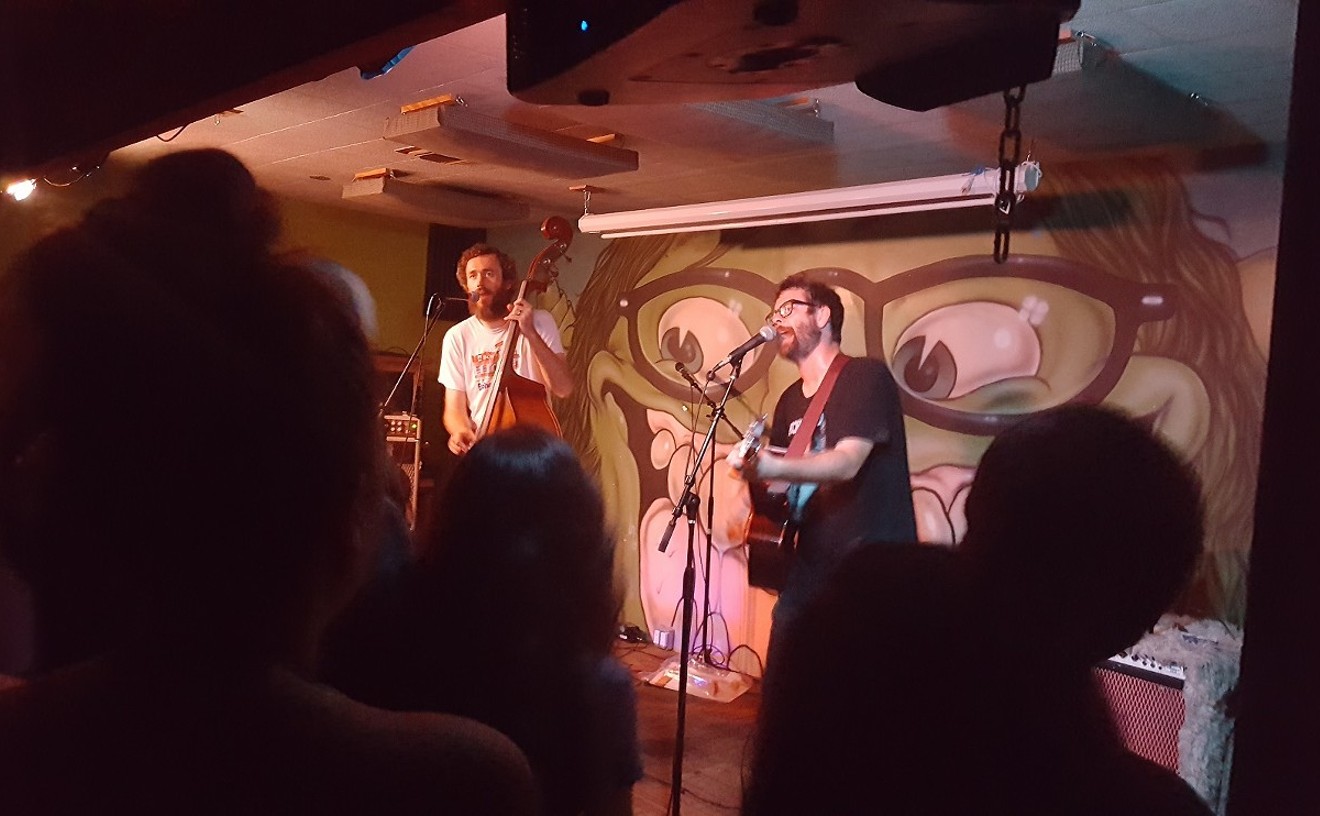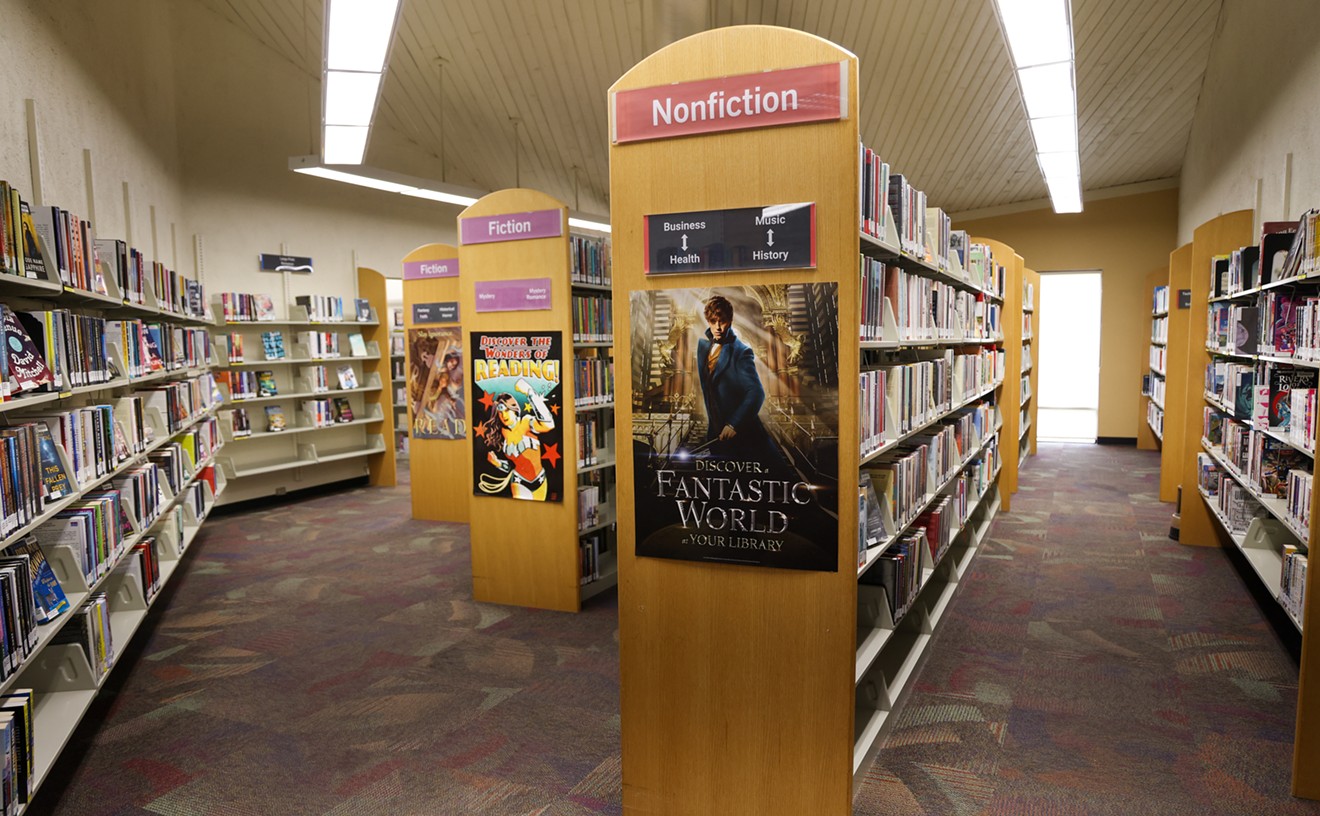The Wasilewskis, Polish immigrants living in a suburb of Chicago, had just learned Janina was to be deported after spending 20 years in the United States. A 10-year bar on returning to the country after deportation has kept her, and the Wasilewski's young son Brian, from returning. That was three years ago. In that time, Tony Wasilewski has been trying to get them back.
"Tony and Janina's American Wedding," a documentary directed by Leitman, catalogs the family as they work to be reunited. It also tackles the broader immigration issue (including Senate Bill 1070), and what Leitman calls a "broken system" of immigration.
"Tony and Janina" screens this Friday at Metro Arts Institute. We spoke with Leitman fresh from a nod at the Chicago International Film Festival to talk about the film, SB 1070, and the Wasilewskis. Hear more after the jump..
In your own words, how did you meet with the Wasilewskis and what do you hope to accomplish with "Tony and Janina's American Wedding?" I met them the day Janina found out she was going to be deported and that her final stay of deportation had been denied, and I had been hired to shoot a short piece on them. So, I had to put this thing together, shoot it, and put it up on the Web for this organization. Once that was over, I felt like I needed to see what would happen, what the final outcome would be. I needed to see it through to some logical, or illogical conclusion. At first I wanted to reunite them; I thought that by filing some appeals she would be back in six months, but there is no system in place to reverse these 10-year bars. It's three years later and she can't come back.Can the issues that a Polish family in Chicago experiences be paralleled to those experienced by families in Arizona?
I think [they] can. For the most part, the reason that SB 1070 came into effect has nothing to do with a story like Tony and Janina's, but both are examples of the fact that we have a broken system. Arizona obviously has border issues, but there are states all over the country that have high Latino populations, high Asian populations, high Polish populations -- but people find themselves in a position where they come to America for one reason: they want to work, but they get here illegally and they want to change their status but they can't. That's the parallel.
Is this an especially timely era for this documentary to be released?
Yes. Gauging the release of the film along with the issue has been an interesting creative process in itself because I wanted to follow this story to some sort of conclusion as there was a lot going on in the background politically. There was a personal reason, for the family, but there was also another reason on the national spectrum.I think if it hadn't been for SB 1070, a lot of the country wouldn't have seen how extreme it had gotten. The rest of the country looked at that and said, "We're condoning racial profiling."
What would you say to people and politicians who say hard-line immigration laws like Senate Bill 1070 are the best way to fix immigration?
I would say that this a problem that has been growing for 20 years, and it's only going to get worse. The cost that it would take to deport everyone that was found here would far outweigh any other possible solution in place, and I think that the only way to remedy the problem is to put together a system that documents the people that are in this country. And if they want to stay here, they have to pay a fine, learn English, and go through other processes.
On the other side of the issue, what would you tell families displaced by immigration laws?
As far as light at the end of the tunnel, I feel like there's hope, and then the hope is dashed. I don't think it will happen very soon. I think we need to change the way people look at immigrants. Especially in a place like Arizona, there are people who really and truly do the work that others won't do. Do I think that most of the people that are here undocumented would get in line and pay a fee if they weren't afraid of being sent back? Yeah, I do.
Tony and Janina's American Wedding screens at 7:15 p.m. Friday at the Metro Arts Institute.










